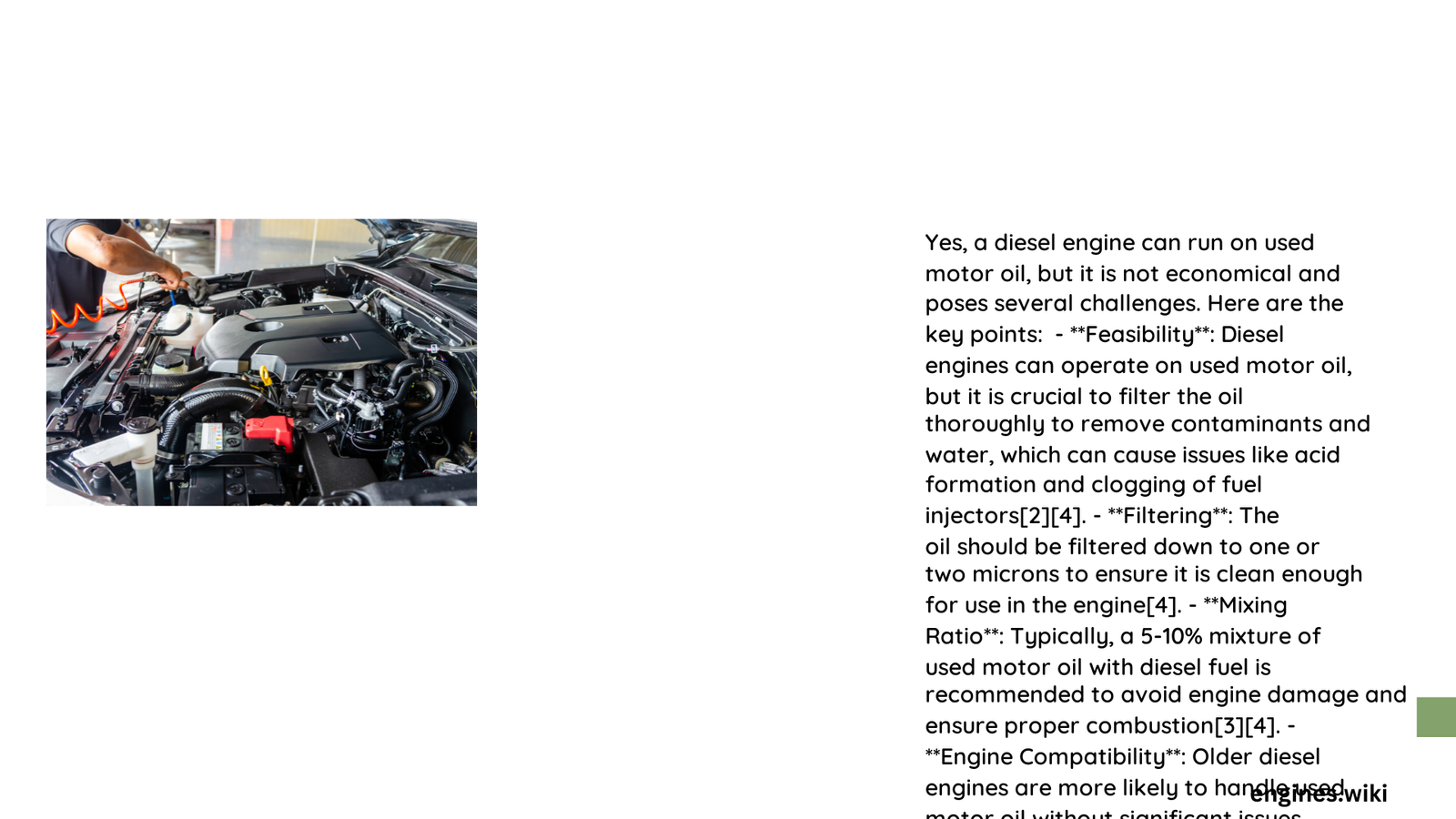Used motor oil presents significant technical challenges when considered as a potential fuel source for diesel engines. While the concept might seem environmentally appealing and cost-effective, multiple engineering and mechanical barriers prevent direct implementation. Diesel engines require precise fuel specifications, and used motor oil contains contaminants that can cause substantial damage to engine components, fuel systems, and overall performance.
What Happens When Used Motor Oil Enters a Diesel Engine?
Used motor oil contains complex chemical compositions that differ dramatically from standard diesel fuel. These differences create multiple potential failure points in an engine’s operational system:
Chemical Composition Challenges
- Contaminant Accumulation: Used motor oil contains:
- Metal particles
- Combustion residues
- Degraded additive compounds
- Carbon deposits
Viscosity and Performance Risks
| Oil Property | Diesel Fuel Requirement | Used Motor Oil Characteristics |
|---|---|---|
| Viscosity | Low, consistent | Highly variable |
| Flash Point | High | Potentially lower |
| Particulate Content | Minimal | Significant |
Can Used Motor Oil Damage Diesel Engine Components?

Absolutely. The potential for damage is extensive and multifaceted:
-
Fuel System Corrosion
- Metallic components experience accelerated wear
- Seals and gaskets deteriorate rapidly
- Fuel injector nozzles become clogged
-
Engine Internal Damage
- Increased friction
- Reduced lubrication effectiveness
- Potential catastrophic mechanical failure
Technical Alternatives for Waste Oil Utilization
While direct combustion is not recommended, alternative approaches exist:
- Professional Refinement: Converting used motor oil into biodiesel
- Industrial Recycling: Specialized processing for energy recovery
- Controlled Industrial Applications: Specific industrial heating systems
Environmental and Economic Considerations
Pros of Waste Oil Recycling
- Reduces environmental waste
- Potential energy recovery
- Minimizes crude oil dependency
Cons of Direct Engine Usage
- High risk of mechanical failure
- Potential warranty invalidation
- Significant maintenance costs
Expert Recommendations
Professional mechanics and automotive engineers unanimously advise against using used motor oil directly in diesel engines. The risks far outweigh potential benefits.
Safe Disposal Methods
- Certified recycling centers
- Professional oil collection services
- Automotive service center drop-off programs
Conclusion
Diesel engines cannot safely run on used motor oil without extensive, costly modifications. The technical barriers, potential for catastrophic engine damage, and complex chemical incompatibilities make this approach impractical and dangerous.
Recommended Actions
- Always use manufacturer-specified diesel fuel
- Properly recycle used motor oil
- Consult professional mechanics for waste oil management
